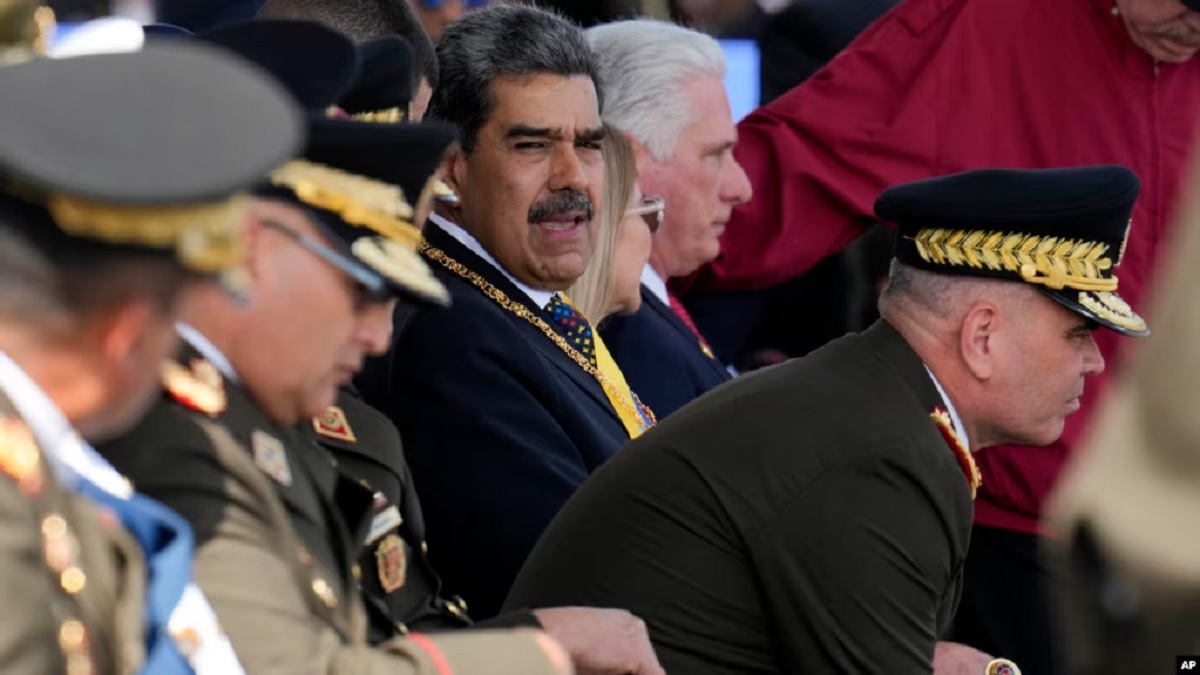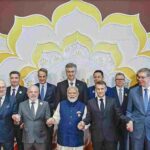
After 10 in the morning, Maduro proclaimed himself president of Venezuela for a third term from the elliptical hall of the National Assembly, under a Caracas and other cities in the country that were under an enormous “preventive” repressive deployment, which included the feared DGCIM (military counterintelligence), the National Guard and the National Police, along with parapolice groups and other armed civilians. Then, after noon, he held an event with the Armed Forces, where the senior military and police officers swore loyalty to him.
Shortly after 3 in the afternoon, María Corina Machado broadcast a video in which she announced that “Edmundo [González] He will come to Venezuela to be sworn in as constitutional president at the right time. When the conditions are appropriate” and that they decided that “it is not convenient for Edmundo to enter Venezuela today.” That’s as far as the story of something that was known, where they only played the card of some crack in the Armed Forces and hence their insistent calls to the military to remove support from Maduro. The January 9 protests that they had called were not of the magnitude that they announced, María Corina Machado appearing at a small gathering in Chacao, east of the city of Caracas, to give a speech, and then release a story about an alleged brief kidnapping by repressive forces.
Although the government had announced last week that during Maduro’s inauguration they would fill the 10 avenues of downtown Caracas that surround the Legislative Palace, in reality the story was different, where supporters only managed to occupy a few blocks near the headquarters. of the National Assembly. The Bolívar, Universidad, México, Urdaneta, San Martín, Sucre, Baralt, Fuerzas Armadas, Panteón and Lecuna avenues, the closest to the National Assembly, were not very crowded, like an ordinary day.
Maduro spoke of a constitutional reform calling for a “great national dialogue”, which this Friday will sign the presidential decree to establish a “broad national commission to prepare the constitutional reform project”, while referring to the upcoming municipal elections, legislative and gubernatorial elections this year. Ironically, and as if they had just arrived in government, he declared that “We are going to make the revolution from 2025 to 2031, which will be a democratizing revolution in the economic, social, and construction of the State.”
And his message could not be missed to the business community, that is, to the main capitals of the country: “We have the plan, we have laid the foundations, we have had great growth achievements and we must unite more and more for the recovery and the construction of a new economic model… Count on me entrepreneurs! Count on me businessmen!” A sector with whom it has maintained high levels of coexistence and community of interests, with whom they share the benefits of the fierce economic liberalization and the unprecedented destruction of the historical achievements of the working class, business leaders, capitalist unions, which are not merely formal. , but rather joint work to agree on policies.
Once the imposition of a grotesque electoral fraud has been completed, we are in the presence of a political form marked by the ignorance of elementary mechanisms of bourgeois democracy – in this case, that of the universal vote – and the suffocation of democratic freedoms through repression (bloody in occasions) and the induction of terror in the population. A dictatorial civic-military-police regime has just been established, to use Maduro’s own definition of the type of “unity” that sustains him in power, supported by repression and fraud. The result of a consolidation of the new stage of the regime is not only the defeat of an anti-worker and anti-popular side (that of María Corina Machado), but also the triumph of another no less reactionary side, the triumph of a side that tramples at will. the majority will of the people and is imposed on them by dint of more repression and state terror.
Given the new scenario that is presented, it is necessary to have our own political perspective as a class, a policy regarding the democratic issue and social and national problems, that expresses political independence of the working class, that proposes a program from the interests of the workers. Prevent our class from only having as political alternatives those that express the class interests of those who trample on us, of the big capitals of any geographical origin and of the rich of this country, whether new or old.
From the League of Workers for Socialism (LTS) we published a political statement where we present our in-depth analysis of the emerging situation and our political position, which we invite you to read and discuss with us.
Source: www.laizquierdadiario.com

